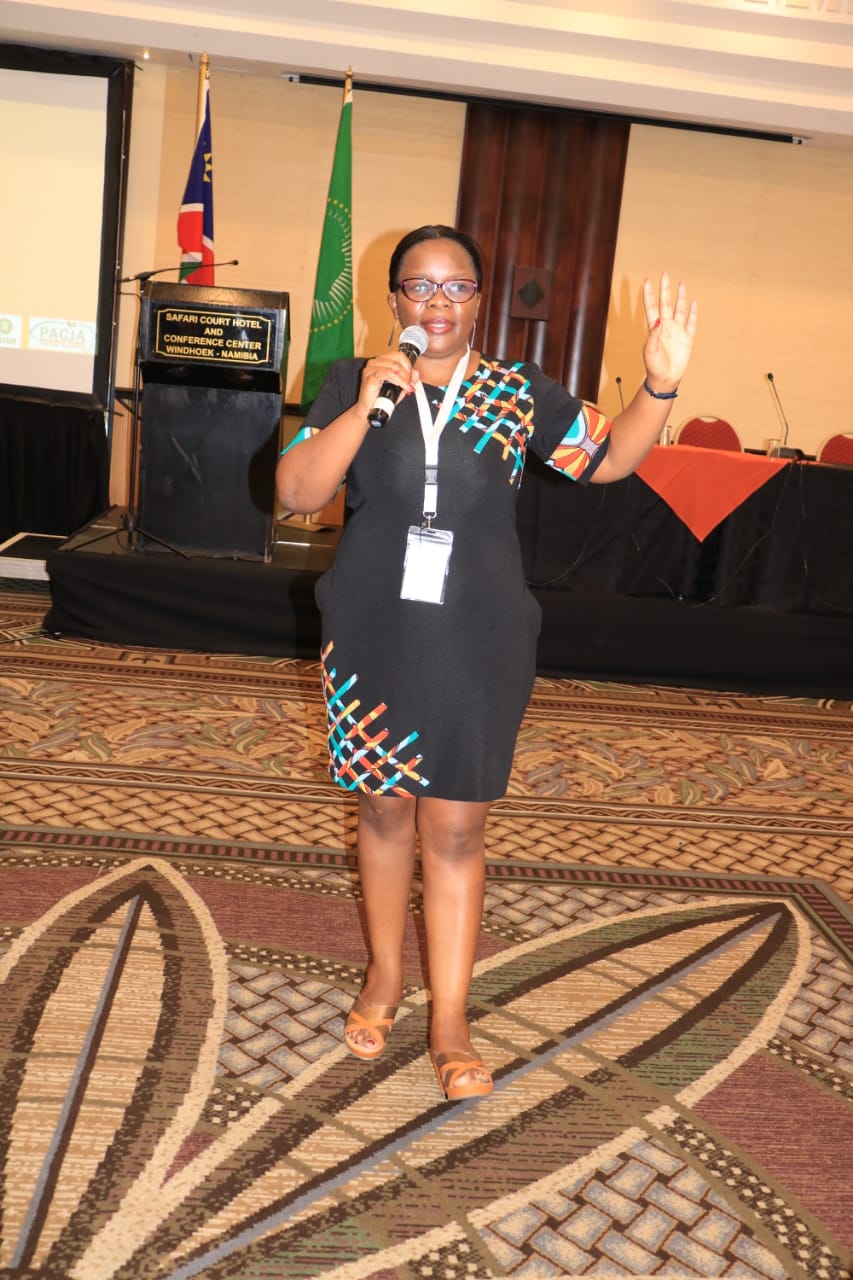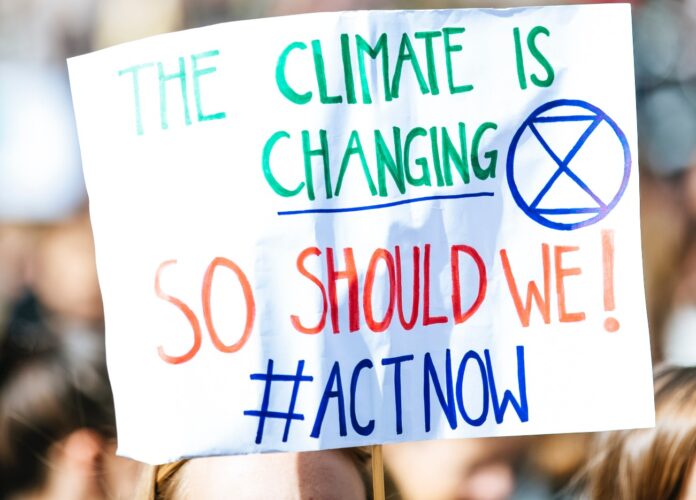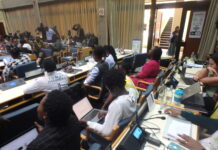By Mary Mwendwa
Nairobi, Kenya: African eco-feminists from 20 countries across Africa have lined up their demands ahead of the United Nations Climate Change Conference (COP27) that will be held in Sham el Sheik in Egypt.
Speaking during the conference, Memory Kachambwa, the Executive Director of The African Women’s Development and Communication Network, FEMNET, urged participants to own their voices as they prepare to go to COP27. “You must define your agenda as you go to COP27. Put the gender agenda on the table and don’t be apologetic about it,” she said, adding, “We cannot allow our civic space to be shrunk.”
The workshop is running under the themes ‘#AfricanFeministCOP27 and #NothingForUsWithoutUs.”
“Women bear the brunt of the climate crisis, but they also hold the greatest knowledge and strength for mobilizing to fight against it. Unfortunately, our involvement is minimal, and there are structural barriers to the representation of women and communities in key spaces where decisions about them are being made. This presents a major obstacle to the realization of climate justice as eco-feminists which is what we are fighting for. We want to break that bias at COP27.” Anne Songole, the Climate Justice Coordinator at FEMNET.
It is in this context that FEMNET, together with its African Activist for Climate Justice, AACJ partners, PACJA, Oxfam Novib, Natural Justice, and Africa Youth Commission, and with support from Christian Aid has organized the Feminist COP 27 currently happening in Windhoek, Namibia. This is an alternative space led by eco-feminists at the frontline of the climate crisis from the global south, as part of solidarity actions to galvanize the climate justice movement in the world.
The feminist COP is an important convening as it will give African eco-feminists who, for one reason or the other, will not be able to attend COP27, an opportunity to demand climate justice and the parties’ fair share of climate action. It highlights especially community and context-based alternatives existing on the ground, where gender-just solutions are quintessential to adapting to and mitigating climate change.

FEMNET wants African women in all their diversities to be recognized for their role as custodians and defenders of ecological and environmental resources and vital agents of change.
Yolanda Mulhuini a participant from Mozambique said that at COP27, women’s full and equal participation in decision-making processes has to be a top priority.
“Women must make their voices heard in climate negotiations. The role of women as agents of change in their homes, places of work, and communities is often underplayed. Yet their role is critical. Those who are most affected by climate change today are women especially those in marginalized communities and must be involved in the design and implementation of climate response actions to ensure the equal sharing of benefits.”
She added “At COP27 Parties agreed to increase the participation of women in all UNFCCC processes and to be included in delegations and in bodies constituted under the Convention, the Kyoto Protocol, and the Paris Agreement. But unfortunately up to now, in the climate decision-making process, women’s voices are not yet equally represented.”
It is for this reason that FEMNET is standing in solidarity with frontline defenders and local communities across the continent and CALLING on African Governments to demand to finance for Loss and Damage.
Dr. Melania Chiponda, the Climate Justice and Gender Advisor at FEMNET and one of the key facilitators of the conference expressed disappointment about the processes used by countries in the global north in tackling carbon emissions. “It is sad that the global south is made to plant trees to tackle carbon emissions yet we are victims of an environment that has been destroyed by others. Everyone should be responsible for tackling their emissions.” This has been the case when it comes to carbon trading. Dr. Melania urged governments to go after big commercial companies which are depleting forests and make them “replenish them”.
Key Demands by Pan-African Ecofeminists
Transition to low carbon economies:
- Advance a just transition as a common position for the continent that centers an eco-feminist future for African women and girls in all their diversity, in policy and decision-making.
- Hold historical and current high GHG emitters accountable for ending fossil fuel pollution and demand a halt to any new extractive initiatives in Africa.
Debt and Climate Finance:
- Uphold and defend progressive policy considerations on loss and damage and commit to a dedicated fund for loss and damage beyond the general adaptation funds.
- Apportion climate financing to local and indigenous climate solutions that promote food sovereignty and sustainable renewable energy.
- Endorse unconditional and debt-free climate financing that is gender-responsive, flexible, and multi-year.
- Develop progressive and radical tax justice policies against corporations, including accountability for minimum and living wage labor compensation.
- Collectively demand debt cancellation, reparations for colonial debt, and historic and ongoing emissions which have funded and continue to fund the development of the global north.
On Meaningful Engagement and Participation:
- Foster meaningful and equitable representation of women and girls in all negotiations and decision-making, including frontline community women leaders.
- Facilitate meaningful engagement of civil society pre-COP as well as post-COP to enhance accountability.
- Resist corporate capture! Demand for the exclusion of multinationals from COP negotiations.
We CALL on all state parties to the UNFCCC to:
- Prioritize continent-wide land reforms which promote equitable access to and control over land by women, including ownership and control of the food ecosystem.
- Invest in and promote locally led, gender-just, and feminist climate solutions and movements that are anti-capitalist, decolonial, and collectivized.
- Support the UN Special Rapporteur on the Promotion and Protection of Human Rights in the Context of Climate Change and call on this office to institute effective mechanisms to strengthen the protection of environmental human rights defenders and accountability for abuse, reprisals, and violations by states and corporate actors.














